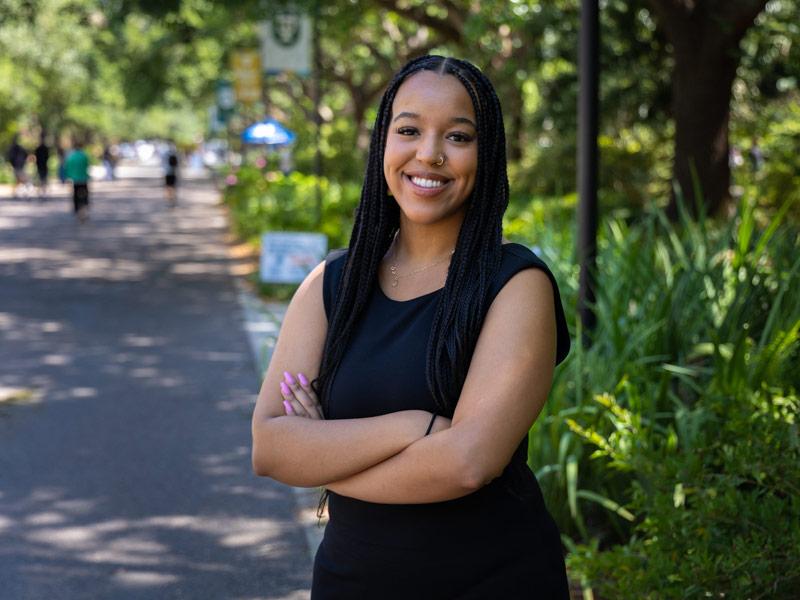Political science, philosophy grad studies ways to decrease incarceration rates
Dahlia Michael was seeking a place with a great sense of community when she was applying for college.
“I was interested in going somewhere that valued community service, where students supported each other and there was academic rigor. Tulane stood out to me,” she said.
Michael was awarded a four-year scholarship through the POSSE Foundation, which identifies students of diverse backgrounds with leadership qualities to attend partnering academic institutions.
Raised in Los Angeles, Michael is a first-generation college student. Her parents emigrated from Eritrea.
At Tulane, Michael stood out for her leadership skills and academic achievements. She is among 34 graduating students to receive the Tulane 34 award, which is given annually to outstanding students who have achieved excellence academically, or in leadership or service. She is graduating with a Bachelor of Arts in political science and philosophy from the School of Liberal Arts.
Michael is pursuing a career in law and is moving to New York City in July to work at Paul, Weiss law firm as a litigation paralegal. She hopes to eventually become a human rights attorney.
She has long been interested in studying ways to decrease incarceration rates and spent a year working on her thesis, “Redefining Punishment: Community-Based Preventive Justice in Louisiana.” She studied systems of punishment in other countries including Portugal, Germany, and Norway, and compared those to the penal system in Louisiana and the United States.
Norway, for example, had a justice system similar to Louisiana’s prior to the 1990s. But noting the level of violence occurring behind bars, prisons in Norway were changed to create conditions similar to life after incarceration. This resulted in a significant drop in the rate of people going back to prison over five years, Michael explained.
She credits several faculty members for supporting her in her work, including philosophy professor Oliver Sensen, political science professor Andrew Ward and sociology professor Andrea Boyles.
As graduation approaches, Michael thinks with fondness about the community and support system who have helped her along the way: her mother, her Los Angeles-based POSSE cohort, and her boyfriend, William.
“Without their continued encouragement throughout my time at Tulane—I wouldn’t have gotten this far,” she said.


